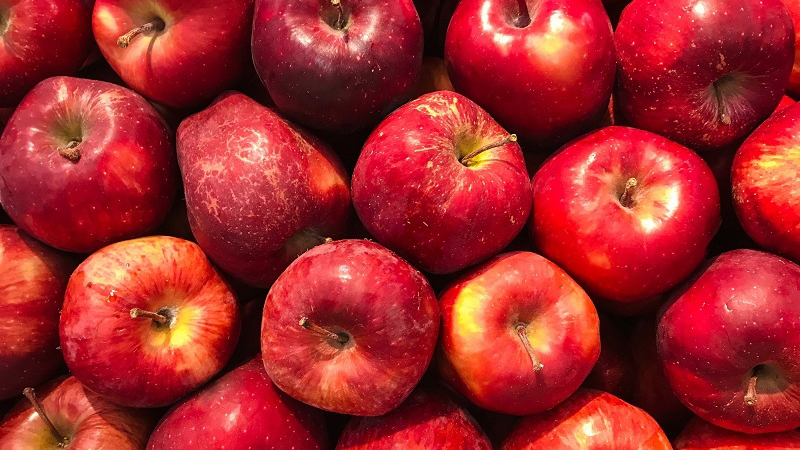New Administration Presents Opportunities And Challenges
With President Obama now in charge and the new 111th Congress installed, apple leaders are evaluating how the dramatic and historic changes resulting from the November elections will affect major issues impacting the apple and specialty crop industries. Following is a snapshot of USApple’s core issues and how they might play in the first year of the Obama era.
Labor And Immigration Reform
President Obama has said that he would consider comprehensive immigration reform in his first year in office. Obama is a co-sponsor of the AgJOBS bill and seems to understand the unique needs of agriculture and the importance of a workable guestworker program. With Senate Democrats holding a minimum of 57 seats, it now appears that with the help of a handful of moderate Republicans, they could reach a 60 vote super-majority.
In the House, a strong majority means Democrats are more likely to tackle immigration, but many members must overcome their hesitancy to act on this hot button, divisive issue among voters. The Democratic hold on all three branches of government will also embolden labor unions on this and other issues.
Passing AgJOBS or Sen. Dianne Feinstein’s (D-CA) Emergency Agricultural Relief Act (EARA, also called “AgJOBS-Lite”) must be a top priority for this new Congress and administration. USApple will also reach out to the Obama administration and urge them to delay implementation of the enforcement-only proposals issued by the Bush administration, including the Social Security “No Match” and “E-Verify” rules, until a comprehensive approach can be taken.
Farm Bill Implementation
There is still much work to be done in implementing the 2008 Farm Bill, particularly new programs such as Specialty Crop Block Grants and permanent disaster funding. President Obama voted for the Farm Bill and supported the new specialty crop provisions, as did House Speaker Nancy Pelosi (D-CA) and other key leaders in the House and Senate. Despite their support, Farm Bill programs could become a target since the administration and Congress will face difficult decisions on the budget deficit and program cuts. USApple and the other members of the Specialty Crop Farm Bill Alliance will work with our allies to maintain funding for our key programs including the Market Access Program (MAP), Specialty Crop Research Initiative, Specialty Crop Block Grants, and Fresh Fruit and Vegetable Program.
Food Safety Issues
Driven by the massive peanut butter-salmonella scare, last summer’s seemingly endless tomato salmonella panic, and the deadly bagged spinach/E-coli crisis in 2007, food safety will almost certainly be high on the legislative agenda this year. A number of bills were introduced in the last Congress, and these more recent scares will only add attention and urgency to the issue.
Three leading food safety proposals are expected. Sens. Richard Durbin (D-IL), Richard Burr (R-NC), and Tom Harkin (D-IA) will likely reintroduce the “FDA Food Safety Modernization Act,” which calls for new science-based standards, increased inspections, traceback, and mandatory recall authority for FDA.
In the House, Reps. Jim Costa (D-CA) and Adam Putnam (R-FL) are expected to reintroduce the “Safe Food Enforcement, Assessment, Standards and Targeting Act (SAFE FEAST Act).” Both Costa and Putnam represent agricultural districts largely comprised of specialty crop producers and consulted with the produce industry to develop their legislation. But all House food safety legislation could be up in the air since moderate and pragmatic Energy and Commerce Chairman John Dingell (D-MI) lost his leadership post on the Committee to liberal activist Rep. Henry Waxman (D-CA).
Crop Protection
A large Democratic majority in Congress, coupled with the appointment of Carol Brauner as EPA administrator, could spell trouble for maintaining uses of key pesticides. However, in a September letter to the Pennsylvania Farm Bureau, President Obama committed to making decisions based on “the best available, scientifically-valid evidence and not the ideological predispositions of agency officials or political appointees.” He went on say that his administration would also “take into consideration the economic consequences of our decisions.”
Maintaining availability of apple pesticides could prove one of our biggest challenges. USApple will continue to work with the Minor Crop Farmer Alliance and others in support of a science-based approach to the pesticide decisions that properly weigh risks and benefits as directed by law.
Trade Agreements
President Obama supports the Market Access Program (MAP) and other trade provisions in the 2008 Farm Bill. USApple will work hard to prevent political deals that allow apple imports from China. Since the Democrats took control of Congress in 2006, work on international trade agreements slowed dramatically. Expanding international trade is not likely to be a top priority for this Congress or administration unless exports fall significantly due to a weaker dollar or other factors.
Change Is A Constant
Over the coming months, USApple will meet with members of the new 111th Congress as well as representatives of the Obama administration to discuss these and other issues. The only constant in life is change and USApple will be your voice in the new political landscape. If you have questions or comments, please feel free to contact me at 800-781-4443 or via email at [email protected].








